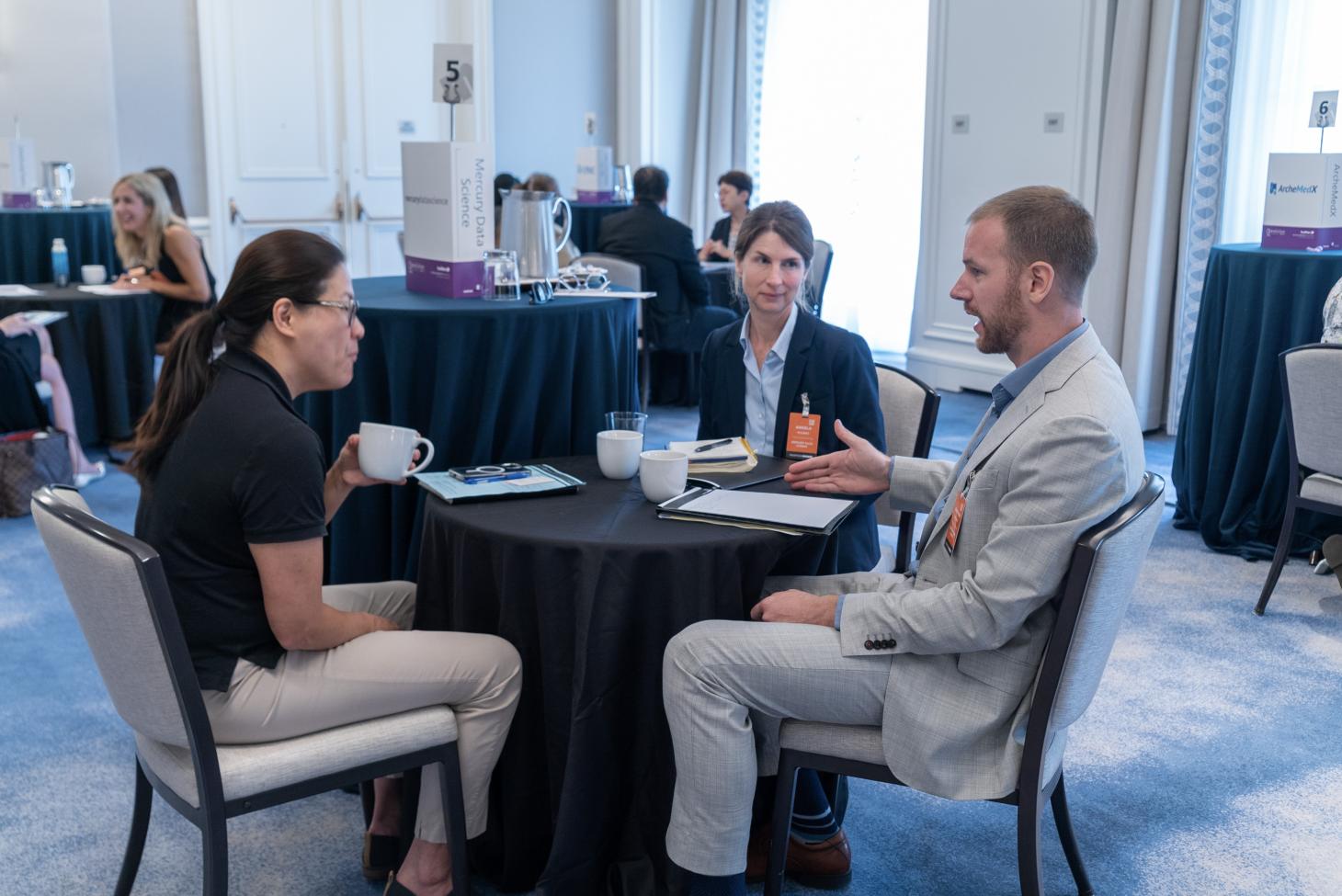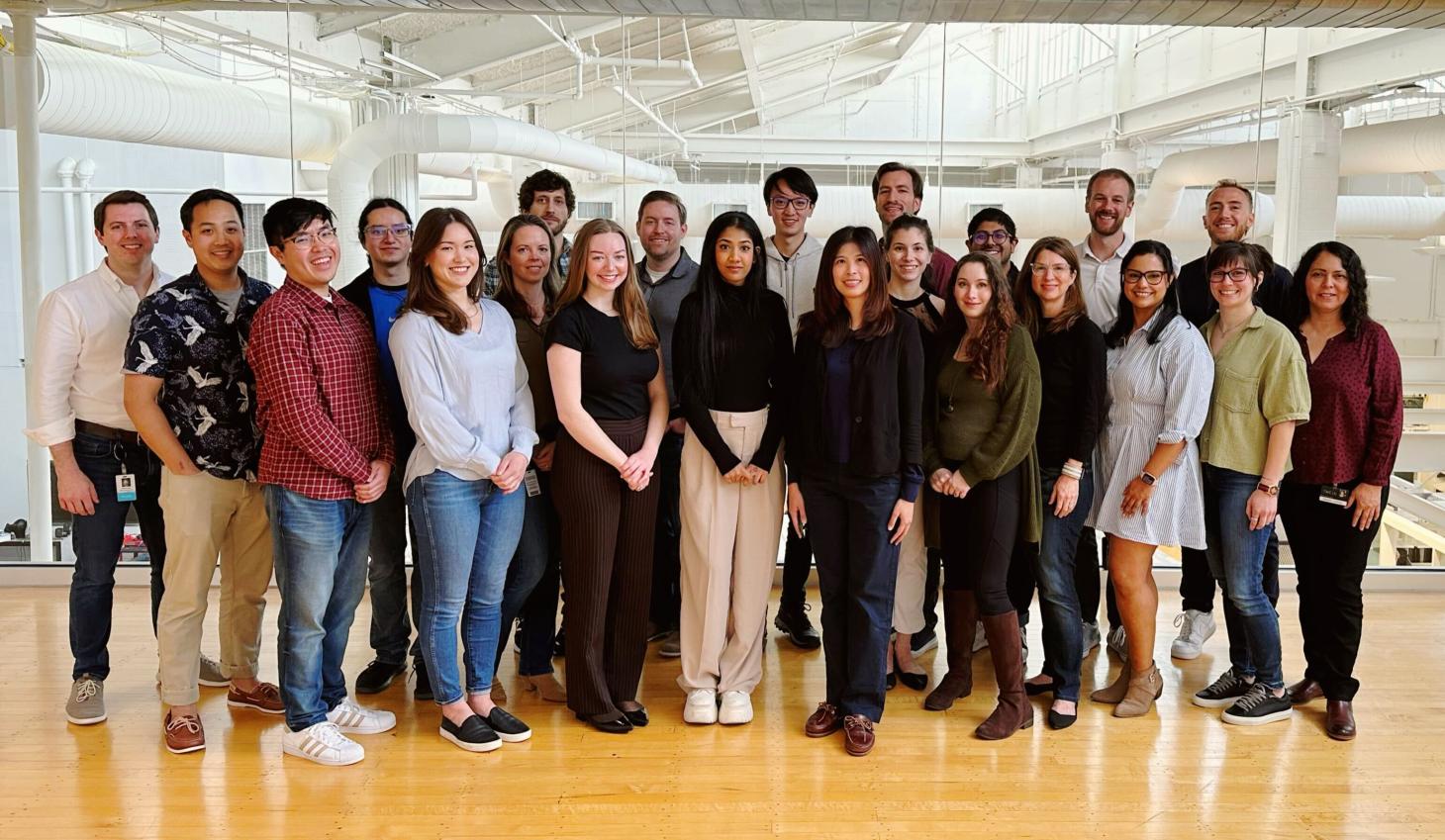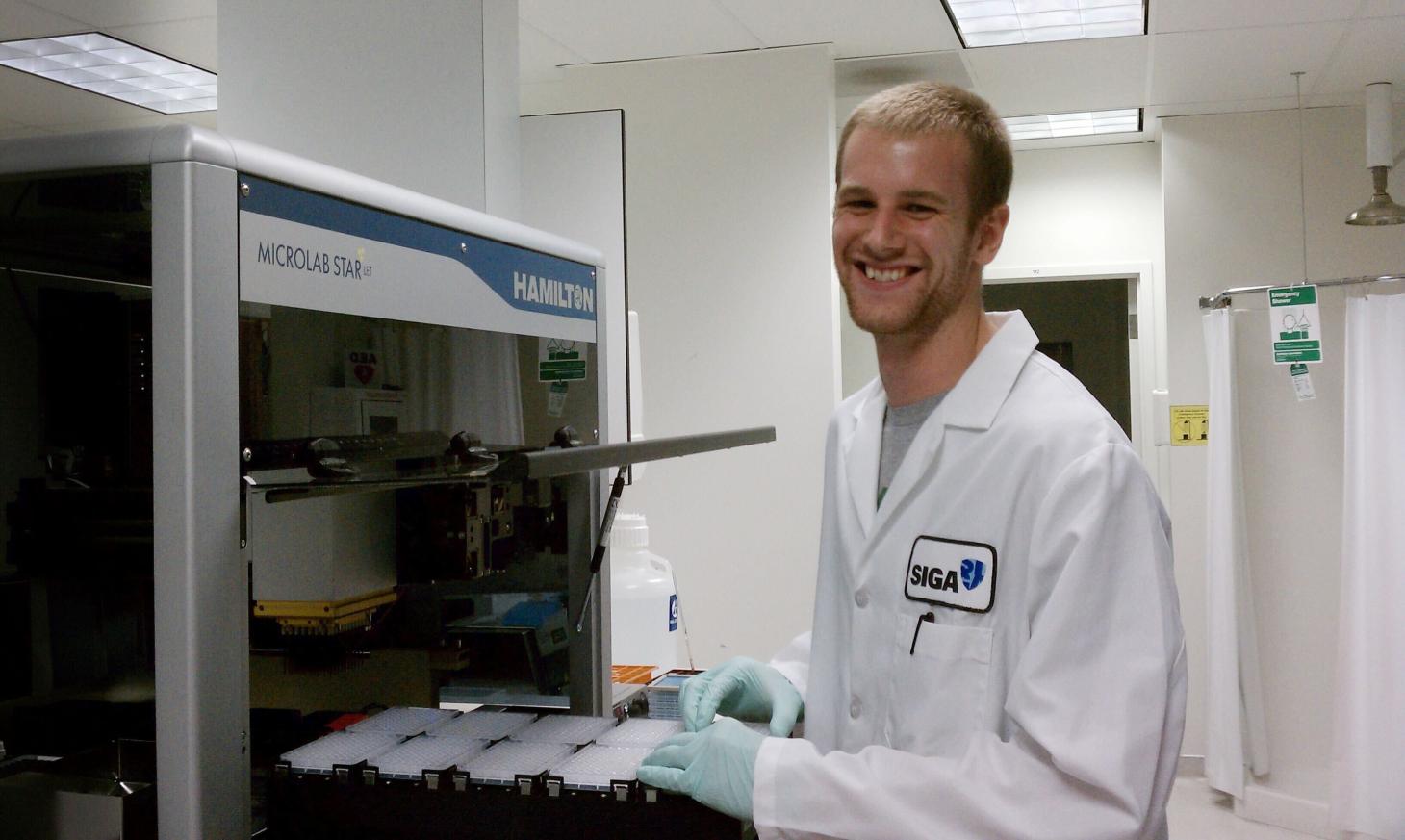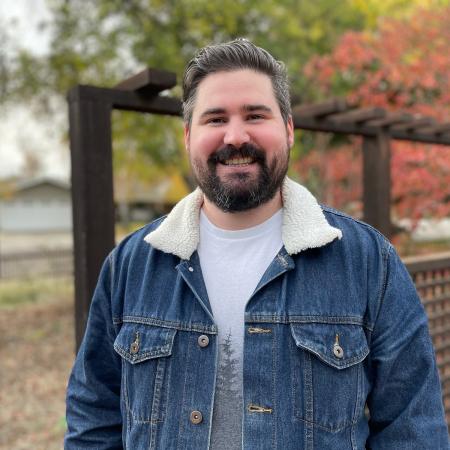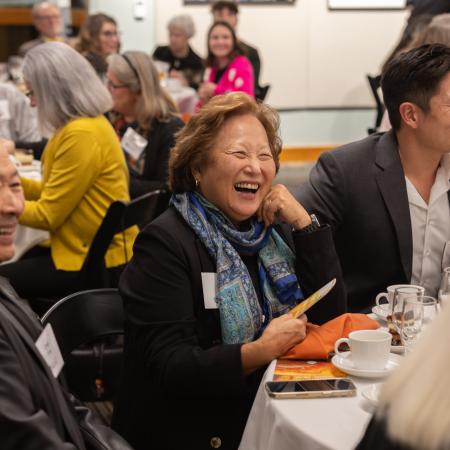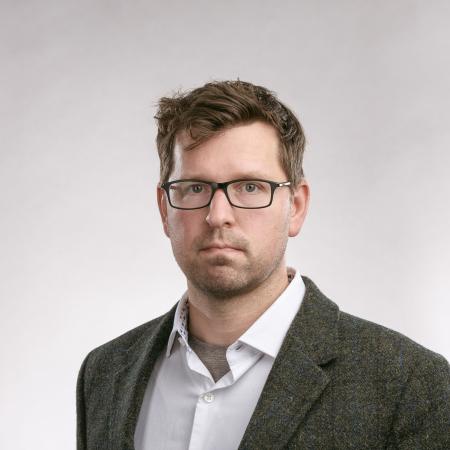Surrounded by plates and pipettes in the lab, life scientist Jonathan Gallion (B.S. '12) envisioned a future that combined biology with technology. With only one year left until graduation, he landed an internship at SIGA Technologies — a global pharmaceutical leader in health security — where he discovered the power of automation.
At SIGA, Gallion programmed robots to screen a library of chemical compounds, helping his team find medicines for viral infections and defenses against bioterrorism threats. After graduating from Oregon State University in 2012 with dual Honors bachelor degrees in biochemistry and biophysics and microbiology, he pursued graduate school before launching a people-centered career at the forefront of innovation.
Now, Gallion is vice president of artificial intelligence and machine learning (AI/ML) for OmniScience, a leading AI organization focused in life sciences and clinical research.
By leveraging the power of large language models, he and his team are transforming the biopharmaceutical (biopharma) industry. Their goal is to drive an industry-wide vision where AI/ML can modernize human health, enhance clinical trial outcomes, accelerate decision-making, and revolutionize data analysis for biotech, medtech, pharmaceutical and preclinical innovation teams – all while complementing human expertise and efforts instead of replacing them.
After driving major breakthroughs in life sciences for only a little more than a decade, the College of Science is proud to honor Gallion with the 2024 Early Career Award.

